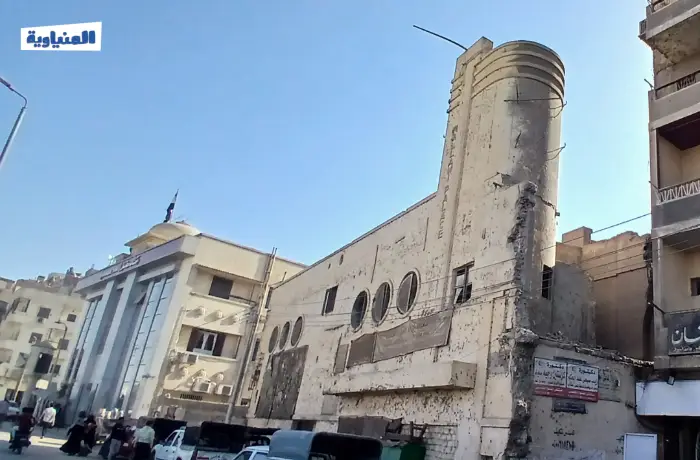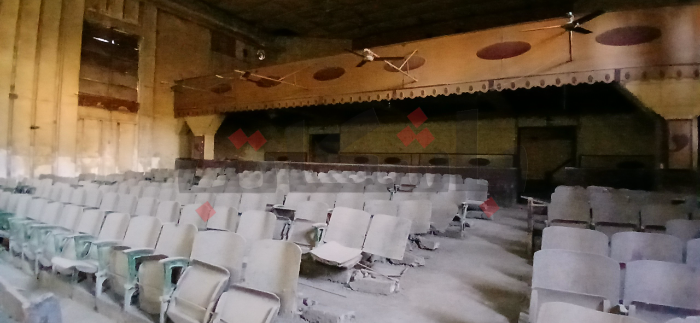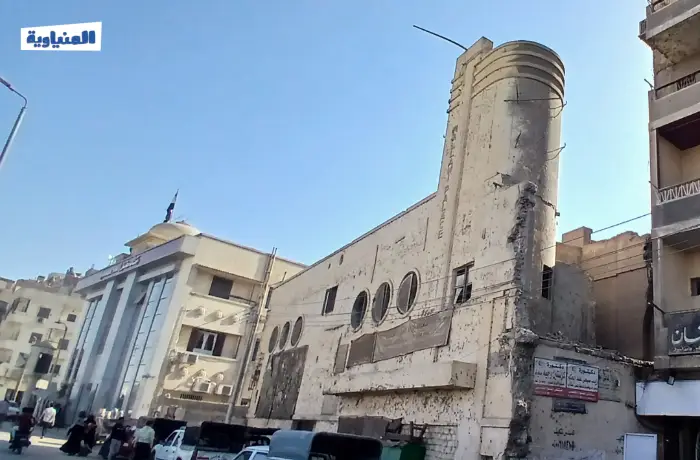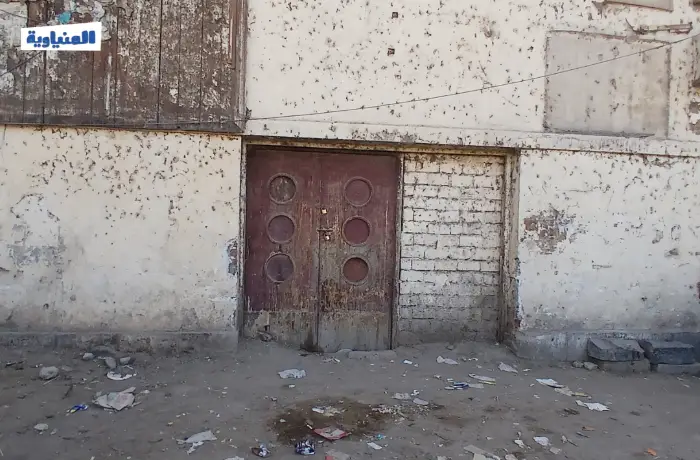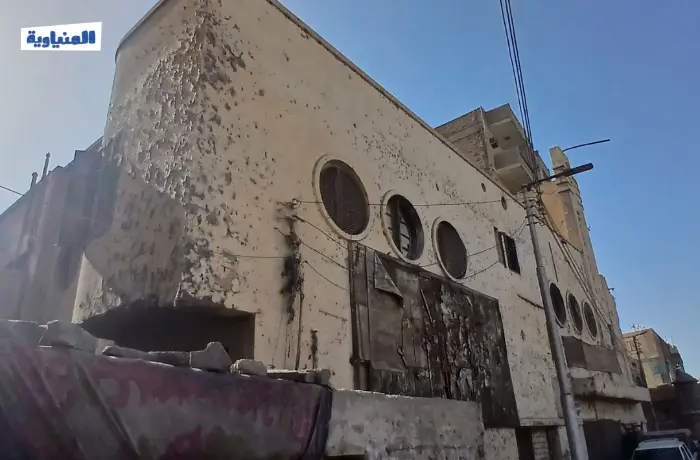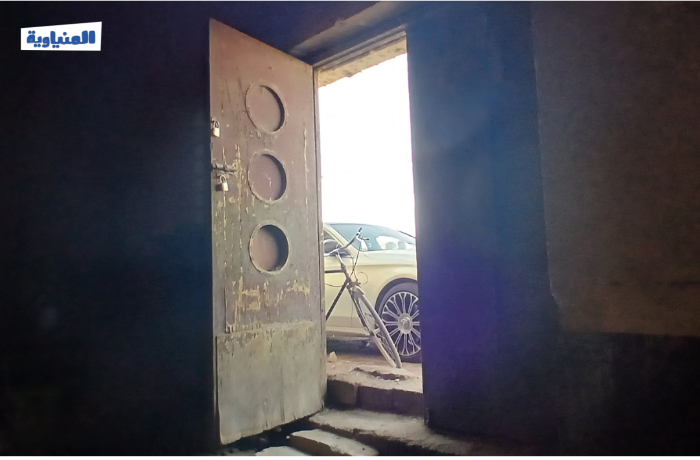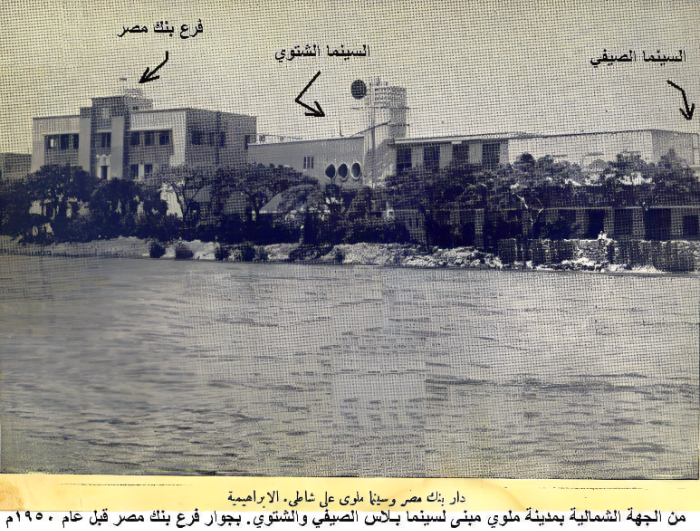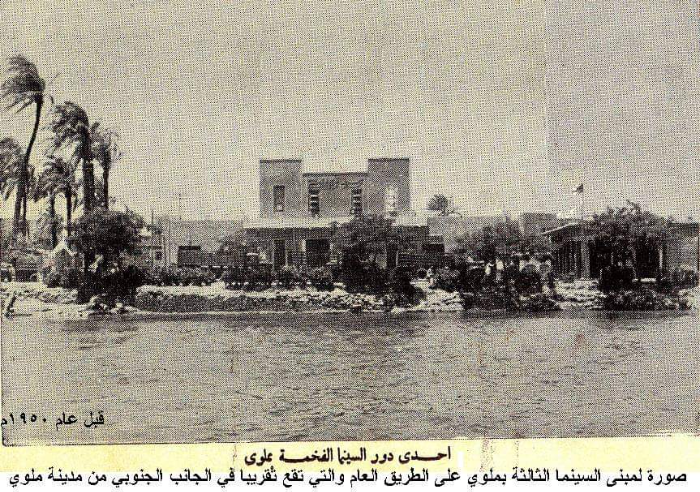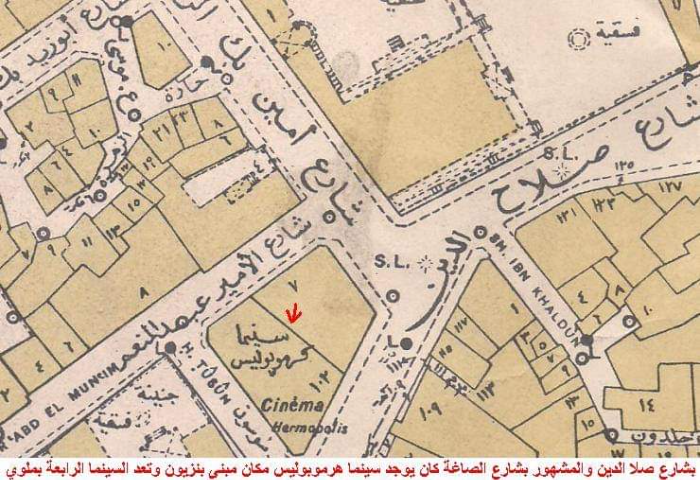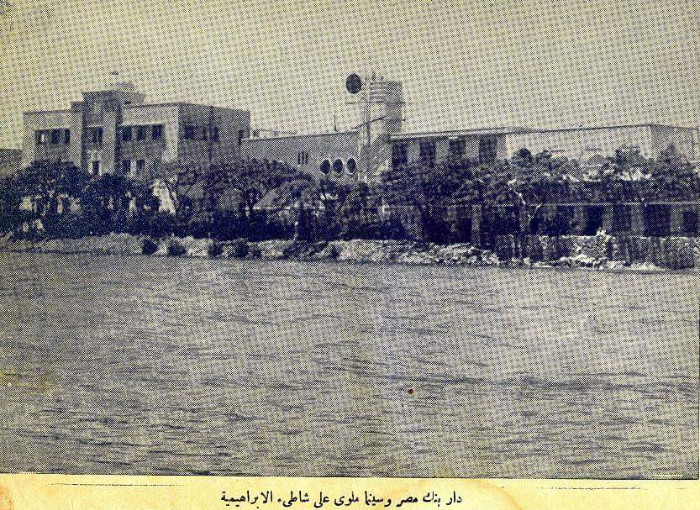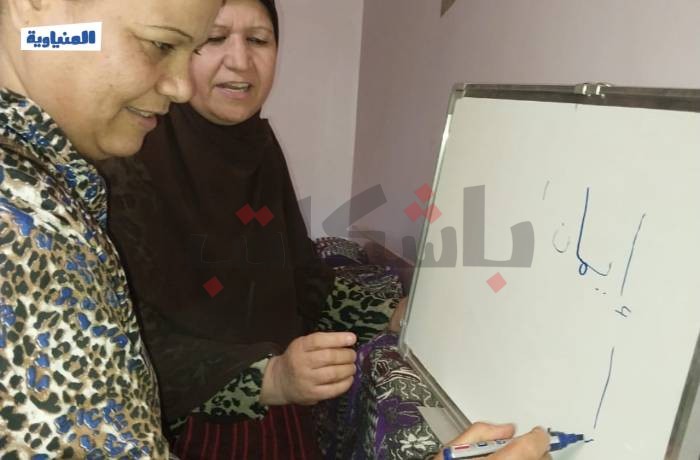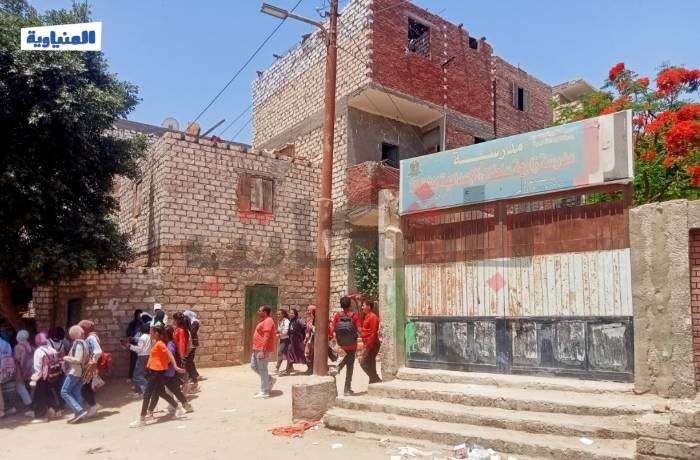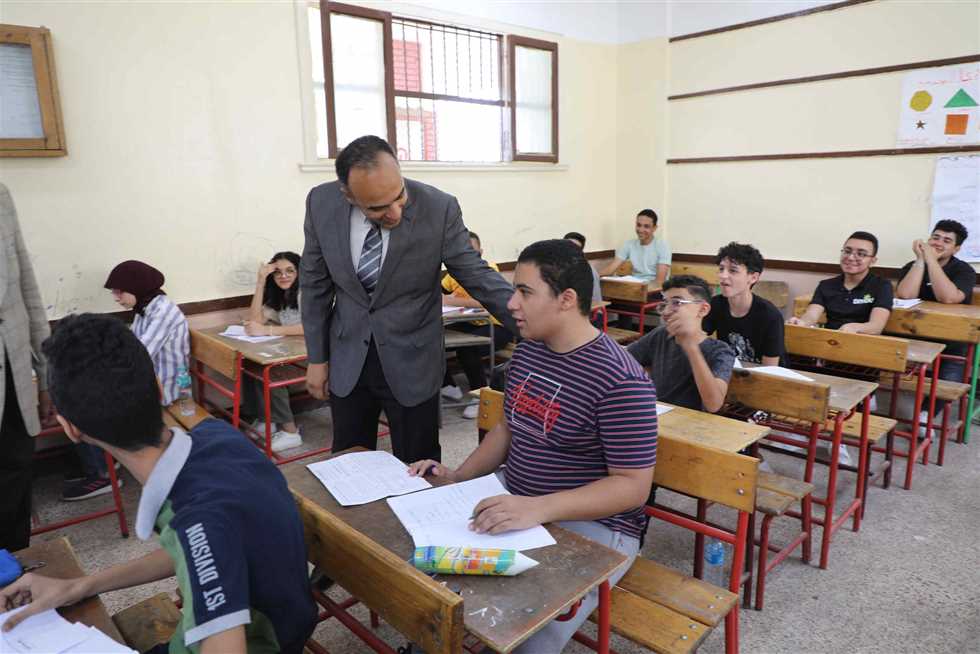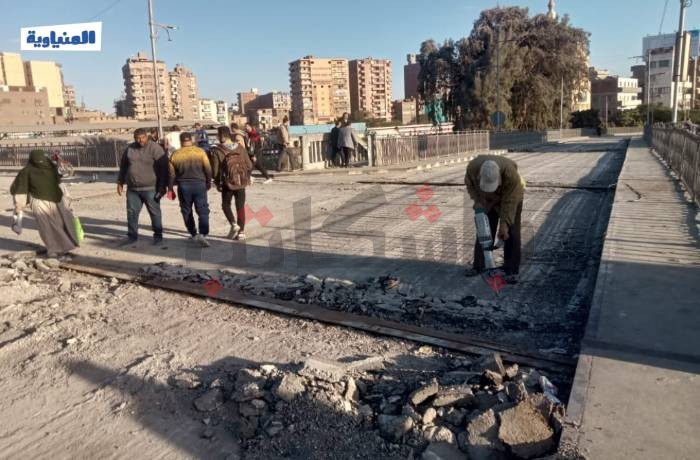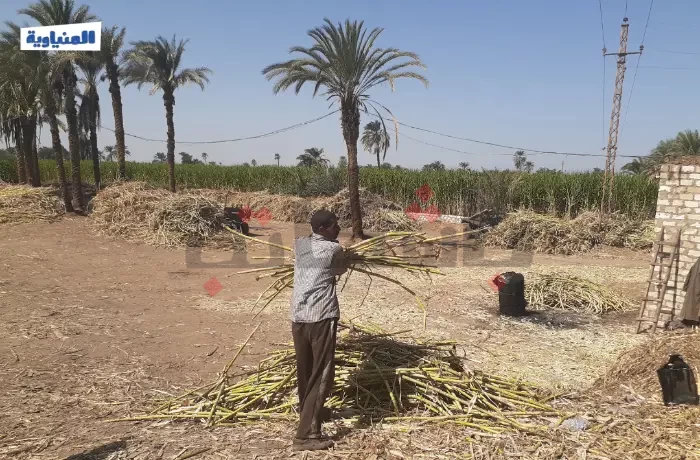Those who saw it, heard about it, or saw its ruins, all agree on the fact that it is unfair to keep it closed, hindering the spread of culture and awareness among the people of Malawi, Minya governorate, where there used to be five film theatres, but now Malawi -biggest town in Minya- is deprived of any access to cinemas.
Until now, the indoor winter cinema building still rises, whereas the summer cinema building is barely there, both buildings overlook Ibrahimiya canal. In the past, the summer cinema building included a theatre and an open screen, according to Mahmoud Hassan Al-Sabrout, a researcher and historian from Malawi town.

Five Cinemas
In the late seventies and early eighties, the city had five film theatres; two had close locations: Palace Summer Cinema and Winter Cinema, the third film theatre was located above Benzion shop in Salah Al-Din Street, known now as Al-Sagha Street, this theatre, according to Al-Sabrout, no longer exists, “I searched for it but couldn’t find an exact date, but I found a map mentioning the cinema but with the name “Karmololis.”
The fourth film theatre, following the Ministry of Culture, is located above the fire station, but it was shut down and became Malawi Cultural Palace. This used to be the only cinema owned by the government there, whereas the rest were private properties.
The fifth cinema is a mobile one, as the projector was put on a table facing a white cloth as a form of a screen, then straw mats would be spread in whichever chosen street. Al-Sabrout confirmed that he couldn’t find any definite dates or clear information about the owners of this cinema, except for Palace Summer Cinema.
The winter cinema overlooking Ibrahimiya canal is used as a theatre for plays and concerts, as the owners believe they gain more profits using the place this way, according to the historian.
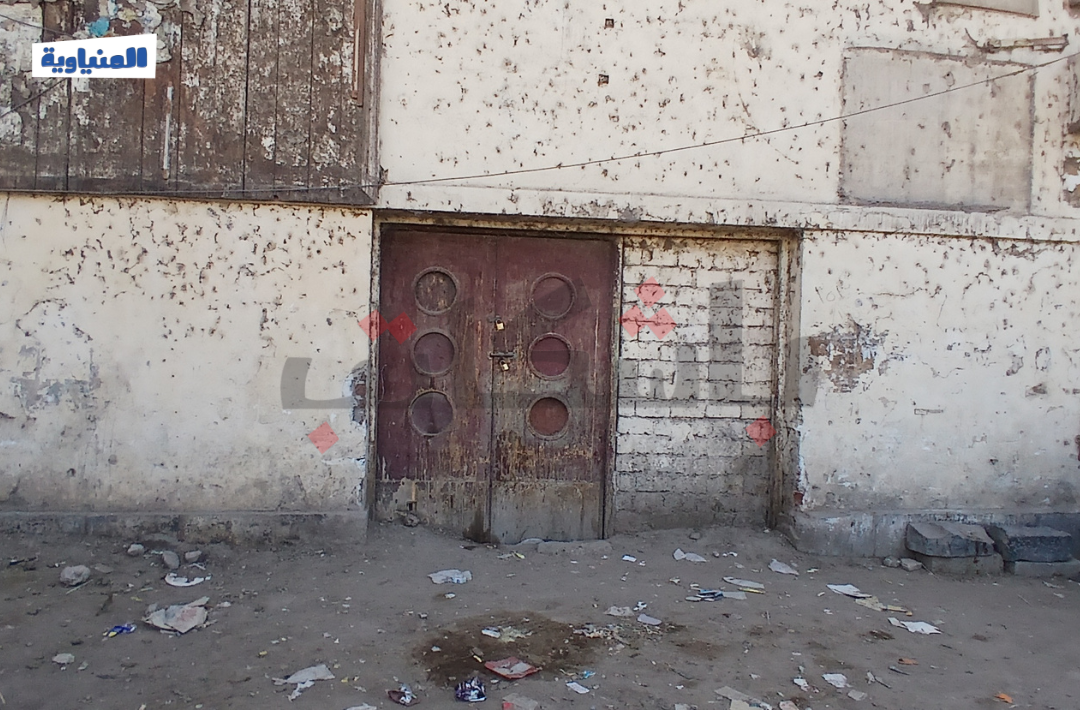
Extremism and Banning
It used to be on Sunday, every week, to screen films in Malawi’s cinemas, showing two new films; an Egyptian film and a foreign film, according to Al-Sabrout, who added, “all cinemas were shut down by the beginning of the nineties.”
Al-Sabrout confirms that the cinema’s shutdown was simply due to the clash occurred between the extremist Islamic group and police; at that time a curfew was imposed on Malawi and people no longer went to the cinemas during the curfew period, the thing that forced the cinemas’ owners to end their businesses, the last of which was Palace Cinema closing its doors in 1995.
One of the people who witnessed these incidents - he refused to mention his name - confirmed Al-Sabrout’s words, saying that the police clashed with the extremist Islamic group, and curfew in Malawi was set starting 09:00 pm.
Al-Sabrout witnessed Malawi when there were multiple film theatres there, saying with nostalgia, “many may think that Malawi’s community was a closed one, but going to cinemas was a major outing for us! It used to take me a long time to buy a ticket for how crowded the box office was, although Malawi’s population wasn’t as large as now”.
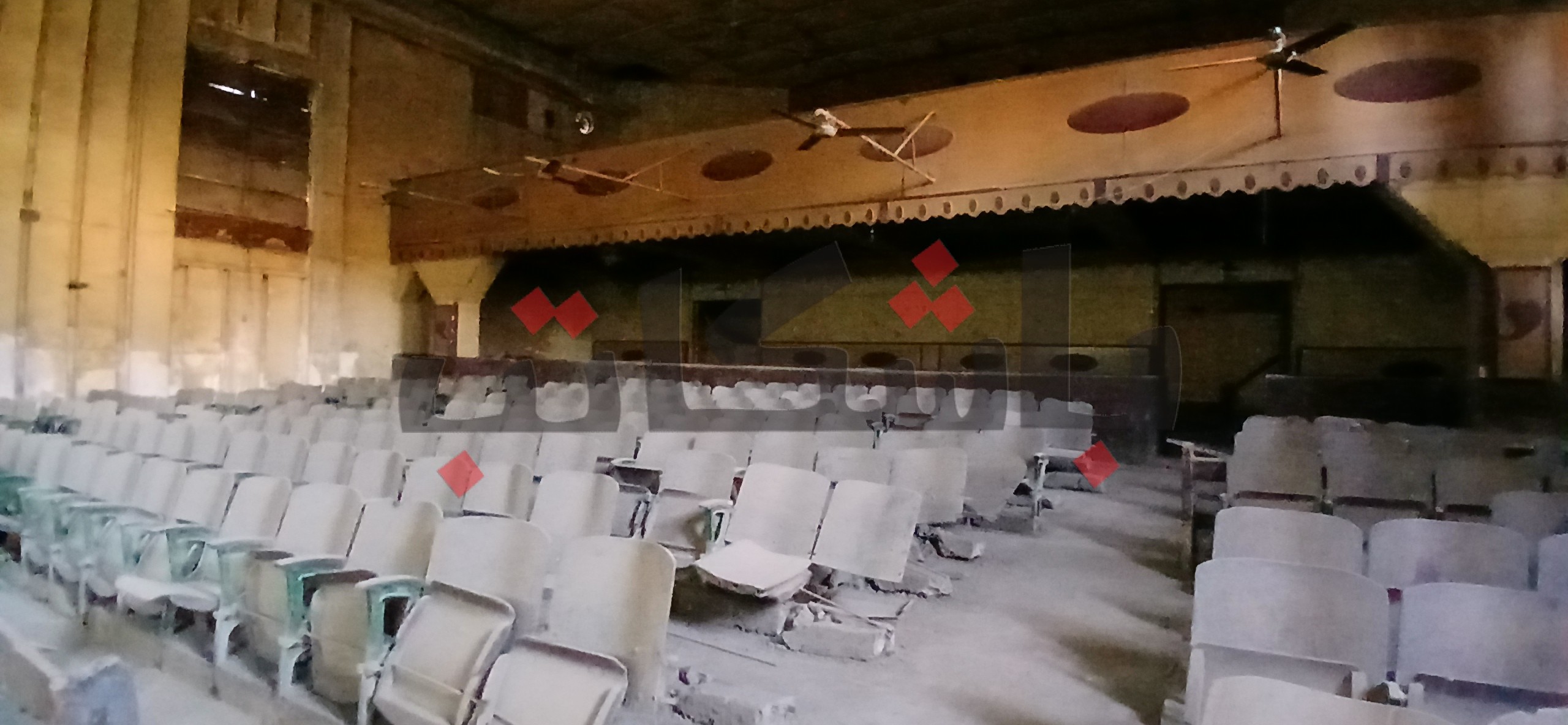
Selling is More Profitable
Al-Sabrout remembers when the balcony ticket used to cost 15 piasters and a half, whereas the economy ticket cost 5 piasters.
Palace Cinema has been closed now for 29 years, and since the owner is one of Malawi’s families, the family decided that it is more profitable to sell than reopen the place.
Khalifa Abdulasalam, 62 years old, describes what Palace Cinema represents to him, saying, “when someone visited us from the neighbouring villages, we used to take them to the cinema; it was the outing that brought us together as expatriate students, also it was our usual outing during the holidays.”
In a conversation with one of the cinema’s owners which he inherited from his father -he refused to mention his name- he said that Palace Cinema was leaking money in the period between 1992 to 1994, the years when cinemas were shutdown, in contradiction with Al-Sabrout’ claim that cinemas were shut down in 1995 and that the clash between the extremists and police and the curfew was the “straw” that led to the shutdown.
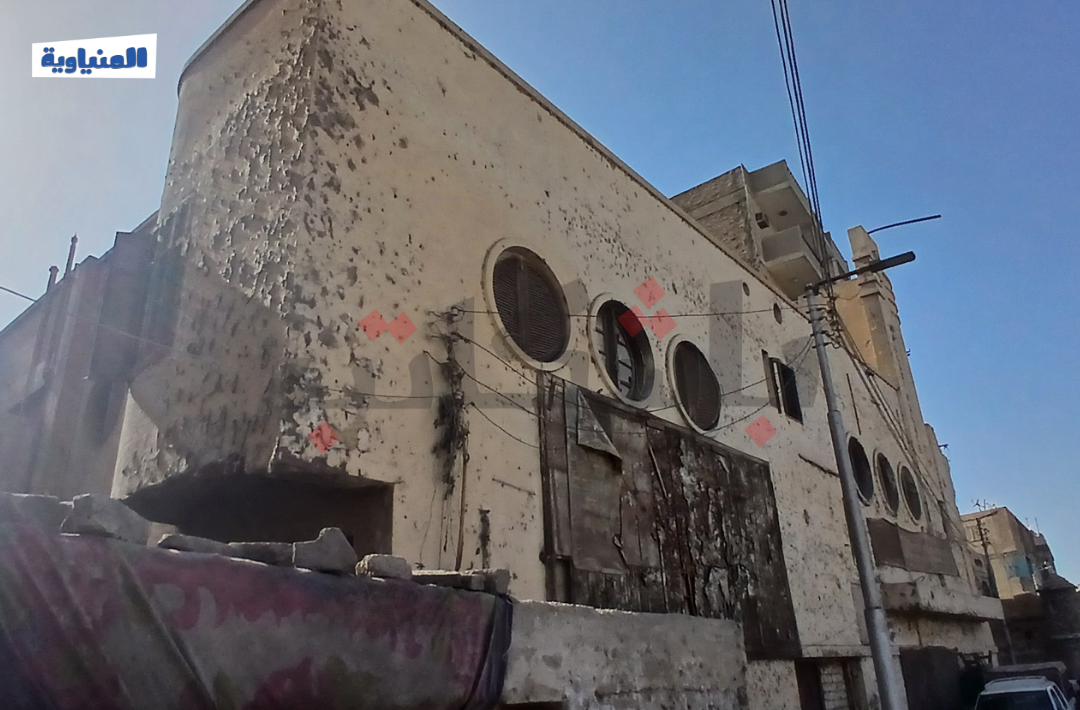
An Issue of Licences
The heirs thought more than once about reopening Palace Cinema, but what stood between them and their decision was that reopening would cost them millions, “we were going to renovate and open it, but issuing a licence is too expensive”, indicating that Palace cinema’s licence was cancelled in 2008, being out of business for many years.
The heir, who refused to mention his name, confirmed that the heirs are considering selling the property, assuring that they are not legally bound to demolish or sell the place, and they don’t even have to sell it on a condition the buyer would keep the place as a film theatre.
There are still generations living in Malawi who were raised to love cinema, they still carry the memories of those film theatres in their city; Sayed Fathy, a retired mathematics teacher at Malawi Military High School, is filled with the love for cinemas, “we used to have so many types of recreational activities during the nineties, and cinemas weren’t rejected by the people in Malawi.”
Today, when Sayed talks to his grandchildren, they look surprised by Malawi’s open mindedness in the past, he calls the Ministry of Culture to open cinemas again, “closing cinemas is like closing the minds and blocking the way to spreading culture, which may lead to serious consequences.”
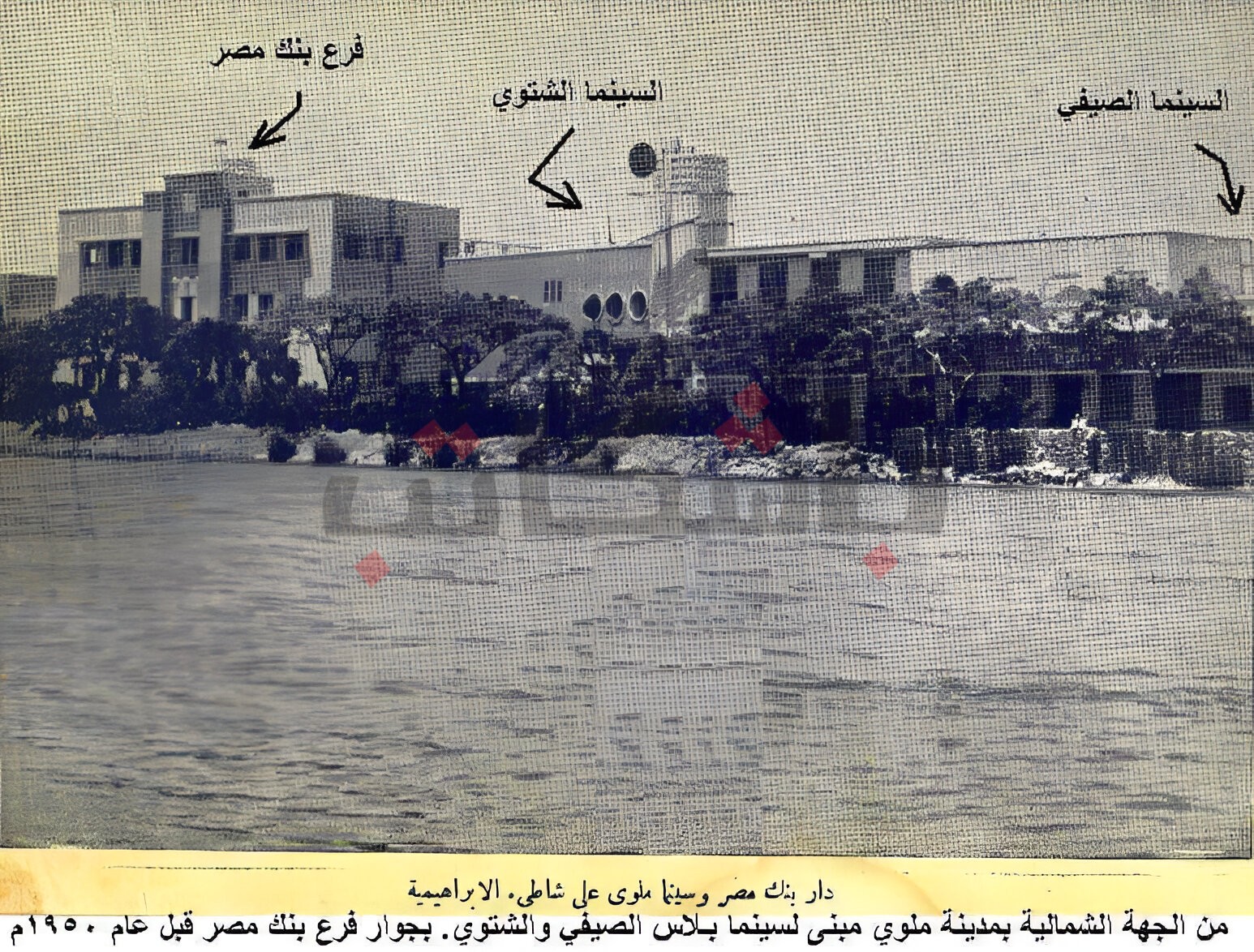
New Minya Cinema
There are current generations who didn’t go to cinemas in Malawi, yet at the same time dreamed of having one there. Mina Yousry, director of short films, is one of Malawi’s residents. He fell in love with films while watching them on TV, and as this love grew and developed, he heard that Malawi used to have cinemas but were shut down.
As Mina became passionate about cinema, he decided to create a documentary investigating the absence of cinemas in Upper Egypt in general, especially Malawi town, “I tried to create a visual and artistic interactive film, not an investigative one.”
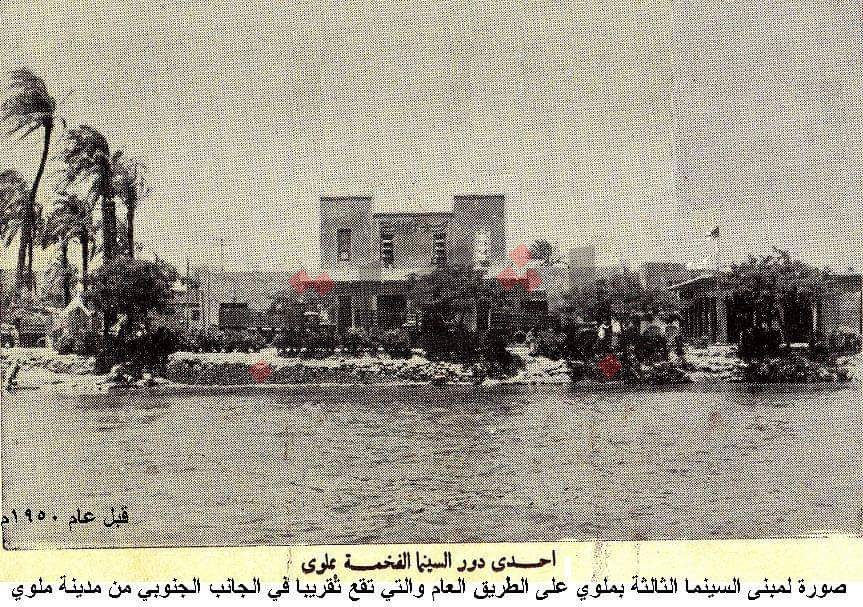
It is worth noting that the only film theatre in Minya governorate currently is located in New Minya city, established in 2017 inside Cityscape Mall, which is 50 kilometres, i.e. two hours, away from Malawi. In addition to the rarity of finding public transportation transferring people from Malawi to Minya, the 969.245 thousand town residents find it hard to visit there constantly.
